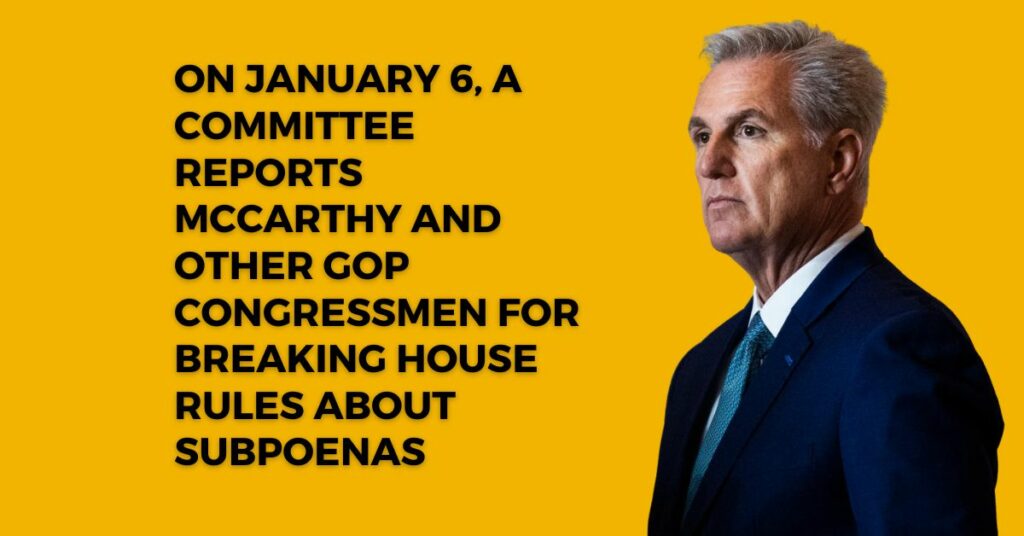On Monday, the committee looking into what happened on January 6, 2021, said that it will be recommending four Republican members of Congress to the House Ethics Committee because they had refused to cooperate with subpoenas.
Rep. Jamie Raskin, a Democrat from Maryland, announced as the House select committee was nearing the end of its final meeting. During that meeting, referrals for criminal charges were made against former President Donald Trump for his role in inciting the violence that occurred on January 6 and for attempting to overturn the results of the election that took place in 2020.
Republican representatives Andy Biggs of Arizona, Jim Jordan of Ohio, and Scott Perry of Pennsylvania are among the members of the House that have been referred to the committee. House Republican Leader Kevin McCarthy is also among those recommended.
The committee’s explanation for why it wanted to talk with each legislator and why their absence of involvement impacted the probe was written out in a “material introducing the committee” document that was 150 pages long and was disseminated after the meeting.
According to the committee’s findings, McCarthy had multiple conversations with President Trump and the vice president at the time, Mike Pence, on or around January 6, including one in which Trump referred to the actions of his supporters storming the Capitol building by saying, “Well, Kevin, I guess these people are more upset about the election than you are.”
According to the committee’s findings, Jordan took part in several post-election planning discussions along with officials from the White House and Trump’s attorney, Rudy Giuliani. Giuliani was the key in putting forward bogus charges that the election was stolen. According to the report from the committee, Jordan discussed “the possibility of Presidential pardons for Members of Congress” with both Trump and Giuliani on January 6, as well as with White House personnel in the days that followed.
According to the memo, Perry and Jordan participated in several meetings at the White House, some of which included conversations on the possibility of social media posts calling on Trump supporters to demonstrate in front of Congress.
Additionally, Perry inquired about the prospect of a presidential pardon being granted. The committee also pointed to text messages that Biggs sent to Mark Meadows, who was the chief of staff at the White House at the time, in which Biggs proposed encouraging state legislatures to appoint pro-Trump electors and urged the president not to concede before working toward establishing fake electors in the weeks following the election. The messages were found in the committee’s investigation.
After ignoring a subpoena and serving as a former adviser to President Trump and a conservative media pundit, Steve Bannon was found guilty of contempt of Congress in October and sentenced to four months in prison for the offense.
This past summer, a jury had reached a guilty verdict on both counts against Bannon, one for refusing to attend a deposition in front of the panel and the other for refusing to deliver necessary papers. Both charges stemmed from the same incident.
The committee wrote in its report, “The Rules of the House of Representatives make clear that their willful noncompliance violates multiple standards of conduct and subjects them to discipline.” They went on to detail the specific infractions that were committed. Then they added that “A House Member’s willful failure to comply with a congressional subpoena also reflects discredit on Congress.”
Suppose the activity in question is allowed to go unpunished. In that case, it will weaken Congress’s traditional power to investigate in support of its authority to make laws, and it will suggest that members of Congress may disregard legal requirements that apply to regular citizens.
If you enjoyed reading this post, please share your feedback in the comments below. In addition, don’t forget to check back on our website Journalistpr.com. frequently for the most recent updates.

